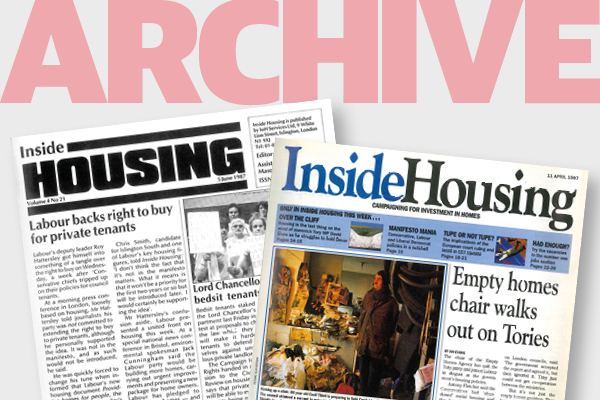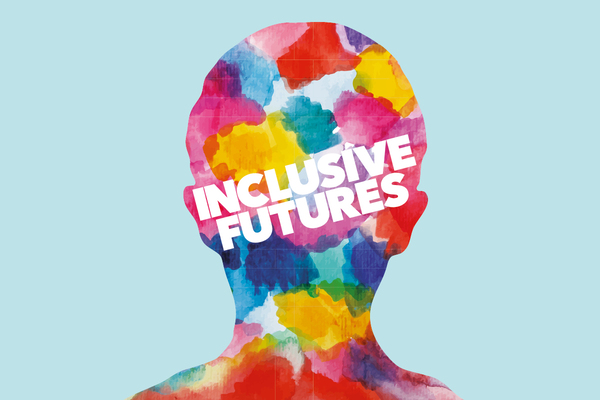You are viewing 1 of your 1 free articles
 Cym D'Souza
Cym D'SouzaTwenty years on from Macpherson, the sector still has much to consider on racial equality
Two decades on from the Stephen Lawrence Inquiry, much work needs to be done to reduce institutional racism in housing, writes Cym D’Souza
The end of February marked two decades since the publication of the Macpherson report (written by Sir William McPherson), resulting from the government inquiry into the handling by the Metropolitan Police of the murder of black teenager Stephen Lawrence.
The key finding of the report was how institutional racism was rife in many areas of British public life, including in local authorities, housing associations, social services, schools and the police.
The report concluded that institutional racism is the collective failure of sectors or organisations to cater for people because of their colour, culture or ethnic origin.
It can be detected in the organisational processes, attitudes and behaviour which amount to discrimination through unwitting prejudice, ignorance, thoughtlessness and racist stereotyping that disadvantage black and minority ethnic (BME) people.
‘Race and housing’ studies going back to the 1960s had identified institutional problems in the British housing system, including the social housing sector.
These included racial disadvantage and discrimination revealed in the often poor and overcrowded housing in which BME communities lived, questionable lettings practices and racial harassment in neighbourhood settings.
“Studies going back to the 1960s had identified institutional problems in the British housing system”
In order to tackle some of these issues, the BME housing sector was created 30 years ago, with more than 100 BME social housing organisations created. While we’re now down to 60, the BME housing sector continues to prioritise combatting racial disadvantage and discrimination.
Race issues thinktank the Runnymede Trust in a 20th anniversary review of the Stephen Lawrence Inquiry report claims that the legacy of the report has been undermined by successive governments, and especially since 2010, to enable full effect of the ‘public sector equality duty’ to confront institutional racism in the public realm.
There are too many examples today, argues the trust, of BME people facing unjustifiable barriers to equality across critical areas of their lives – housing, health, education and employment – to assume that institutional racism has receded appreciably.
A second area of concern identified by Sir William was the lack of BME people at the top of organisations of all types, in all sectors and in senior positions in British public life, including politics, the judiciary, business, the police and public and charitable institutions. These problems persist today.
Social housing has to be included in this list. Inside Housing’s Inclusive Futures campaign finds that just 4.5% of social housing executives and 6.8% of board members are from a BME background. In the BME housing sector, these proportions are more than 10 times greater.
In a recent paper produced by BME National partner the Human City Institute (HCI), at the request of the Cabinet Office’s Race Disparity Unit, on frontline housing services, shows that the social housing sector has much to consider in terms of racial equality for tenants and communities, too.
The paper concludes that BME communities experience significantly greater levels of homelessness and housing need, which has been identified by more than five decades of research, and that the national housing system exhibits aspects of institutional racism.
This has required BME households to be more reliant upon social housing as a means of resolving their housing needs. But the long-tenure decline in social housing as a major tenure over 40 years – accelerated in recent years by a ‘rejuvenated’ Right to Buy and the withdrawal of investment in new social rented housing – places BME communities at a significant disadvantage.
“BME communities experience significantly greater levels of homelessness and housing need”
The decline in public investment in social housing has also resulted in a lower level of new lettings available to BME applicants, exacerbated by more restrictive local council Common Housing Register eligibility arising from the Localism Act 2011.
These trends have fed through into reduced trust by BME communities in the ability of the social housing sector to meet their housing needs. From HCI’s surveys with 6,500 social renters, BME social tenants present lower levels of trust, perceptions of unfairness and satisfaction with frontline services than their white neighbours.
Alongside this, BME communities, especially in London, have been disproportionately affected by the regeneration of poorer social housing estates, with 150,000 residents in the past few years displaced in the name of gentrification.
At a time when race-based hate crimes have peaked at 100,000 annually since the EU referendum, all of us in social housing need to take ‘race and housing’ seriously again.
The BME housing sector, which enables BME communities to have greater control of scarce social housing resources, needs much more support from government and the wider social housing sector.
We believe that such support would further our goal of reducing institutional racism, providing much higher levels of lettings to BME applicants, creating increased trust within BME communities and moderating BME social tenants’ perceptions of unfairness.
Cym D’Souza, chair, BME National, and chief executive, Arawak Walton
Inclusive Futures
Inside Housing’s Inclusive Futures campaign aims to promote and celebrate diversity and inclusion.
We are pledging to publish diversity audits of our own coverage.
We are also committed to proactively promoting positive role models.
We will do this through the pages of Inside Housing. But we will also seek to support other publications and events organisations to be more inclusive.
Our Inclusive Futures Bureau will provide a database of speakers and commentators from all backgrounds, for use by all media organisations.
We are also challenging readers to take five clear steps to promote diversity, informed by the Chartered Institute of Housing’s diversity commission and the Leadership 2025 project.
THE INCLUSIVE FUTURES CHALLENGE
Inside Housing calls on organisations to sign up to an inclusive future by taking five steps:
Prioritise diversity and inclusion at the top: commitment and persistence from chief executives, directors and chairs in setting goals and monitoring progress.
Collect data on the diversity of your board, leadership and total workforce and publish annually with your annual report. Consider gender, ethnicity, disability, sexuality, age, and representation of tenants on the board.
Set aspirational targets for recruitment to the executive team, board and committees from under-represented groups.
Challenge recruiting staff and agencies to ensure that all shortlists include candidates from under-represented groups.
Make diversity and inclusion a core theme in your talent management strategy to ensure you support people from under-represented groups to progress their careers.
THE CASE FOR CHANGE
34%
of housing association chief executives are female
1%
of housing association executives have a disability
1.6%
of housing association board members are LGBT
Women make up 46% of the UK workforce, but Inside Housing research found that they are under-represented on housing association boards (36%), executive teams (39%) and among chief executives (34%).
Almost a fifth of working-age adults have a disability (18%), yet associations reported only 1% of executives and 4.5% of board members with a disability. Many were unable to provide details.
Nationwide, 14% of the working-age population come from a BME background, climbing to 40% in London and Birmingham. Yet our research found that 6.8% of board members identified as BME, compared with 4.5% of executives.
Statistics on representation of LGBT people in the workforce are in short supply, but official statistics suggest that 2% of the total UK population identify as lesbian, gay or bisexual, rising to 4.1% for 16 to 24-year-olds. Our survey found that 1.6% of board members and 10 executives were LGBT – but most organisations were unable to provide figures.
INSIDE HOUSING’S PLEDGES
We will take proactive steps to promote positive role models from under-represented groups and provide information to support change.
We pledge to:
Publish diversity audits: We will audit the diversity of the commentators we feature. We will formalise this process and publish the results for future audits twice a year.
Promote role models: We will work to highlight leading lights from specific under-represented groups, starting in early 2018 with our new BME Leaders List.
Launch Inclusive Futures Bureau: We will work with the sector to compile a database of speakers, commentators and experts from under-represented groups. The bureau will be available to events organisers, media outlets and publications to support them to better represent the talent in the sector.
Take forward the Women in Housing Awards: Inside Housing has taken on these successful awards and will work to grow and develop them.
Convene Inclusive Futures Summit: Our new high-level event will support organisations to develop and implement strategies to become more diverse and inclusive.










